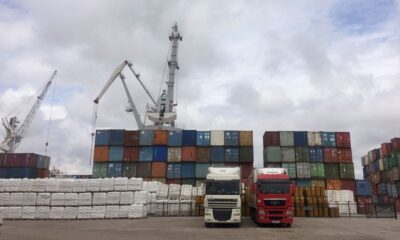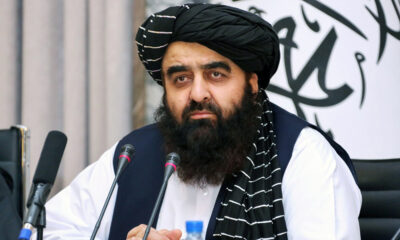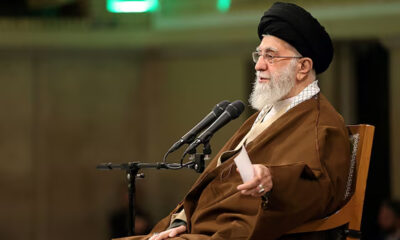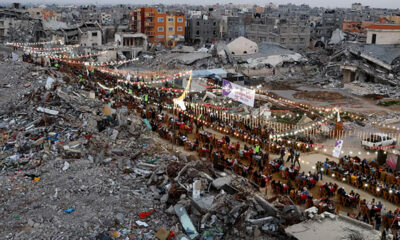Latest News
Muttaqi pushes for engagement at regional cooperation initiative meeting
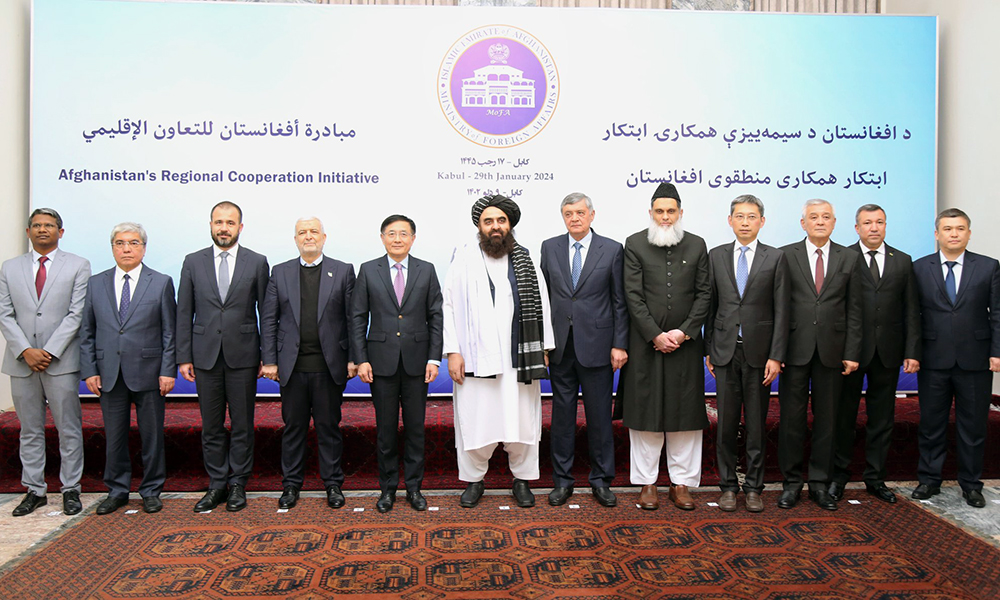
Afghanistan’s Regional Cooperation Initiative meeting brought together representatives and ambassadors of 12 neighboring and regional countries on Monday in Kabul.
Under discussion was the need for positive interaction between regional countries and the Islamic Emirate, coordination in the field of regional cooperation, creation of a common region-oriented narrative at a regional level and joint cooperation to make the most of economic opportunities the region has to offer.
Countries represented were India, Kazakhstan, Turkey, Russia, China, Iran, Pakistan, Uzbekistan, Turkmenistan, Indonesia, Kyrgyzstan and Afghanistan.
Addressing participants, the Islamic Emirate of Afghanistan’s (IEA) acting foreign minister Amir Khan Muttaqi said the meeting was mainly aimed at discussions and talks on establishing a “region-centric narrative aimed at developing regional cooperation for a positive and constructive engagement between Afghanistan and regional countries.”
He said regional cooperation could be focused on the following:
• Exploring region-centric and engagement pathways based on common regional benefits;
• Creating a region-centric narrative for positive and constructive engagement with the Afghan government to tackle existing and potential threats in the region;
• Exerting efforts directed at soft connectivity and hard connectivity that would lead to regional economic development benefitting peoples of the region;
• Unanimity in calling for the removal of unilateral sanctions on the region and on Afghanistan in particular; and
• Respecting one another’s choices of indigenous and traditional development models and governance methods.
He said since the IEA’s takeover in August 2021, there have been positive developments in the areas of trade and transit with countries in the region.
According to him, the end of the war and the IEA’s “economy-centered foreign policy” has paved the way for the IEA “to work together on common interests in cooperation with the region by creating a region-centric narrative and continue to fight potential threats.”
Muttaqi stated that under the IEA it has “been proven that a regional perspective revolving around economic connectivity with the region at its center constitutes one of the fundamental pillars of the Islamic Emirate’s foreign policy.”
He stated however that the IEA “respects others’ interests, choices, government structures, and development models, and in return, expects others to respect Afghanistan’s interests, and governance and development choices and models. “
He went on to say that after a 20-year “fight for freedom”, it became clear that “imported plans for Afghanistan did not heal the pain of the Afghan people.
“Whether it was models offered by countries or international organizations…or the plans by special envoys…the alien prescriptions presented under any name and address have had reverse results. Moreover, unfortunately the UN plans conveyed during the tenures of its various envoys also has led to nothing but war, instability, and occupation of Afghanistan.”
He stated that today, Afghanistan is a sovereign, free, and safe country with a “government representing Afghanistan” that “stands ready and has the capacity to conduct talks on common and concerning issues with different regional and international sides.”
He went on to say Afghanistan does not seek confrontation nor controversy with any side, but wants positive engagement.
“Therefore, our choices shall be respected. Instead of proposing governance models and pointing fingers at the system, it is better to engage on mutual interests,” he said.
He noted that Afghanistan, like any other country, has problems. “A country that has been the target of foreign invasions and interventions and internal wars for nearly half a century, it is not possible to resolve all the problems in a short period of time.
“Nevertheless, the Islamic Emirate of Afghanistan is resolved to find solutions for the problems that [are] mostly inherited from the past,” he said.
“Grabbing this opportunity and initiative, also through the remaining regional mechanisms such as Afghanistan’s neighboring countries ministerial meeting or the Moscow format, we hope to succeed in reaching a regional consensus that preserves all actor’s interests.
“Within the framework of such regional consensus, we can pave the way for finding incentive mechanisms to reach thematic agreements that serve mutual interest.”
Meanwhile, Dr. Mohammad Naeem, head of the Afghan embassy in Doha, said the Islamic Emirate assures countries participating in the meeting that the IEA gives priority to having positive relations with countries in the region.
According to him, the Islamic Emirate wants to convey the message that Afghanistan is ready to be actively present in regional initiatives.
Latest News
Roof collapse at Afghan camp in Pakistan leaves six dead
Officials said 10 people had been trapped under the debris after the roof, made of sand and gravel, caved in.

Six young girls died on Saturday night, and four others were injured, when the roof of an under-construction house in Karachi, Pakistan, collapsed, police said Sunday.
Officials said 10 people had been trapped under the debris after the roof, made of sand and gravel, caved in.
Doctors at the Abbasi Shaheed Hospital confirmed that six girls, aged between three and 15, had died, while four other family members, including a 40-year-old man and a three-year-old boy, were injured.
Sindh Chief Minister Murad Ali Shah expressed deep sorrow over the tragic incident, offering prayers for the victims and condolences to the grieving family, Pakistan media reported.
Authorities have launched an investigation into the collapse, while rescue teams continue clearing the debris.
Latest News
Muttaqi leaves for Oman for talks on boosting ties
The Ministry of Foreign Affairs announced in September last year that the Afghan embassy in Oman has been reopened under the administration of the Islamic Emirate.
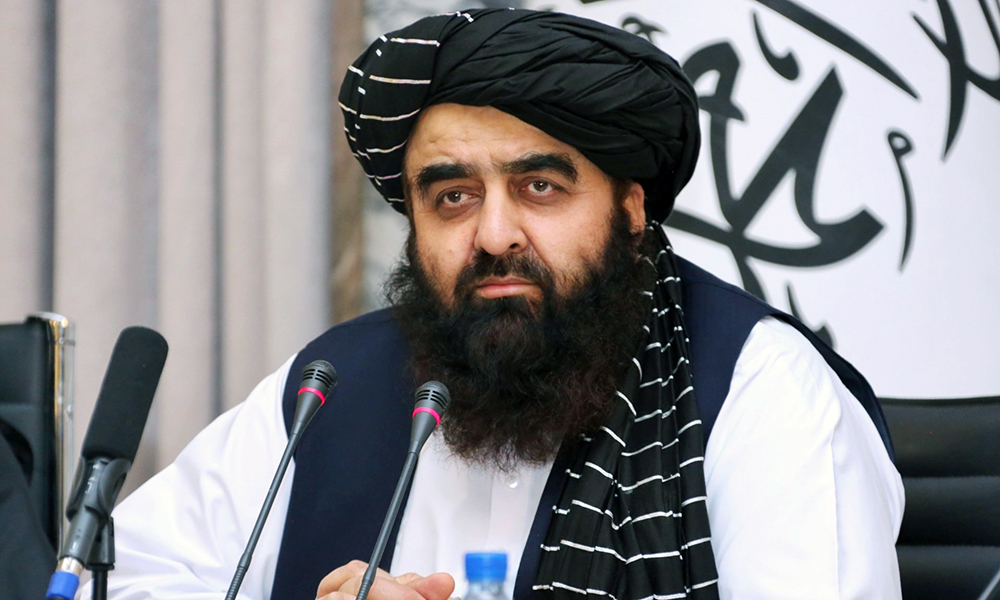
Afghanistan’s Ministry of Foreign Affairs has announced the visit of Amir Khan Muttaqi, the acting minister of the ministry, to Oman.
Zia Ahmad Takal, spokesman for the Ministry of Foreign Affairs, wrote on X on Sunday that Muttaqi is making this trip to Muscat at the invitation of Badr bin Hamad Al Busaidi, the Minister of Foreign Affairs of Oman.
Takal wrote that the acting foreign minister is scheduled to discuss the development of political and economic relations and bilateral cooperation with the Minister of Foreign Affairs of Oman and other senior officials of the country.
This is Muttaqi’s first visit to Oman.
The Ministry of Foreign Affairs announced in September last year that the Afghan embassy in Oman has been reopened under the administration of the Islamic Emirate.
Latest News
Mujahid says IEA’s priority is protecting women’s ‘dignity, honor and sharia rights’
“All manifestations of violence and mistreatment against women have been effectively curtailed. No individual possesses the authority to infringe upon women’s rights or regard them with disdain,” said Mujahid.
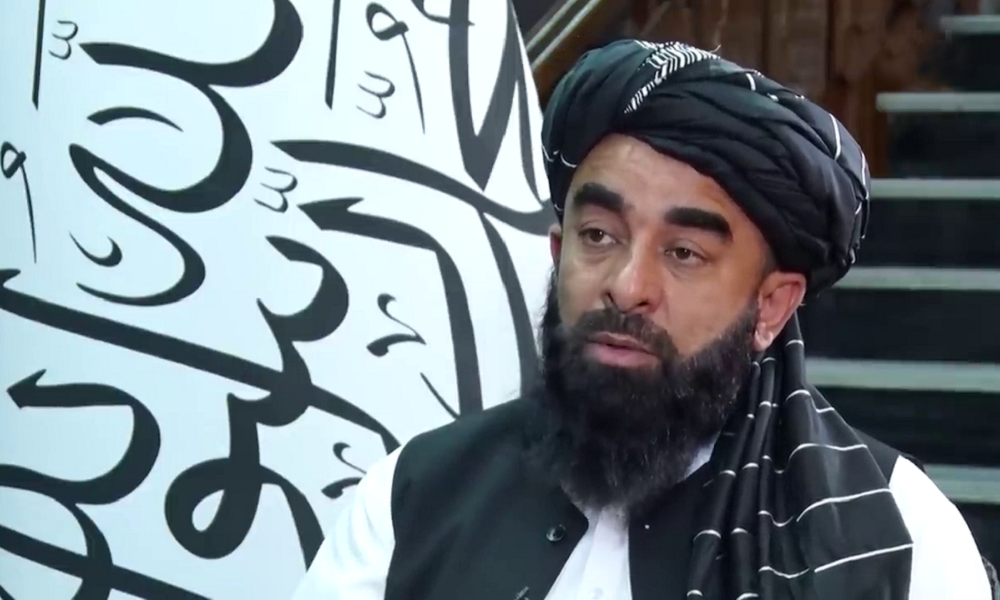
The Islamic Emirate’s spokesperson Zabihullah Mujahid says safeguarding the “dignity, honor and Sharia rights of women” is a priority for the Islamic Emirate.
Mujahid made these remarks in a statement Saturday on his X account, marking March 8th, International Women’s Day.
According to Mujahid, Afghan women now live in complete physical and psychological security, and all forms of violence against women have been prevented.
“All manifestations of violence and mistreatment against women have been effectively curtailed. No individual possesses the authority to infringe upon women’s rights or regard them with disdain,” he said.
Mujahid stressed: “It is incumbent upon the judicial bodies of the Islamic Emirate, alongside other pertinent institutions, to exert their utmost efforts in the protection of women’s rights, guarantee their autonomy in marital decisions, uphold their entitlements to dowry and inheritance, and ensure comprehensive oversight of their legal protections.”
“All fundamental rights afforded to Afghan women have been safeguarded in strict accordance with Islamic Sharia law, as well as the cultural and traditional frameworks of Afghan society. Nonetheless, it is imperative to acknowledge that the discourse on Afghan women’s rights is situated within the specific context of an Islamic and Afghan society, which exhibits distinct divergences from Western societies and their cultural paradigms. Such distinctions must be duly considered in any evaluative discourse,” he added.
Meanwhile, on International Women’s Day, the United Nations in Afghanistan also on Saturday called for the IEA to lift restrictions, which it said, continue to strip women and girls of their fundamental rights.
It also called on Member States to translate solidarity into action—by amplifying Afghan women’s voices, supporting their leadership, and investing in their resilience and future.
This year’s theme, “For ALL Women and Girls: Rights. Equality. Empowerment”, is a stark reminder of the reality in Afghanistan, where women and girls face systematic exclusion from education, employment, and public life. These restrictions are not only violations of human rights but also barriers to Afghanistan’s progress, deepening poverty and isolation for millions, UNAMA said in a statement.
-

 World4 days ago
World4 days agoTrump welcomes Ukraine’s willingness to sign minerals deal, talk peace
-

 Latest News4 days ago
Latest News4 days agoUNSC to hold meeting on Afghanistan next week
-

 Sport3 days ago
Sport3 days agoAfghanistan’s futsal team to face Greenland in Brazil tournament
-

 Latest News3 days ago
Latest News3 days agoNew Trump travel ban could bar Afghans, Pakistanis soon – Reuters
-
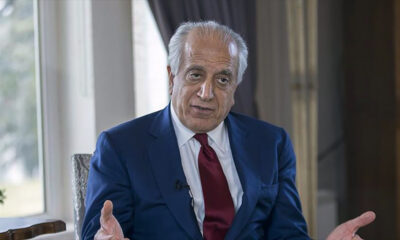
 Latest News5 days ago
Latest News5 days agoDiplomacy a better option for Kabul and Islamabad: Khalilzad
-
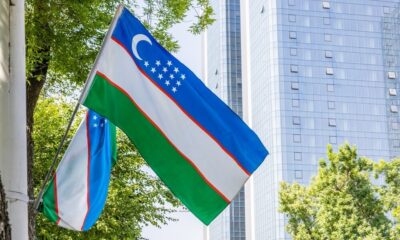
 Business3 days ago
Business3 days agoUzbekistan set to open permanent trade center in northern Afghanistan
-

 Sport2 days ago
Sport2 days agoAfghanistan beat Greenland 5-4 in Brazil futsal tournament
-

 Sport4 days ago
Sport4 days agoAfghanistan’s Omarzai rises to top ICC Men’s ODI All-Rounders Rankings


